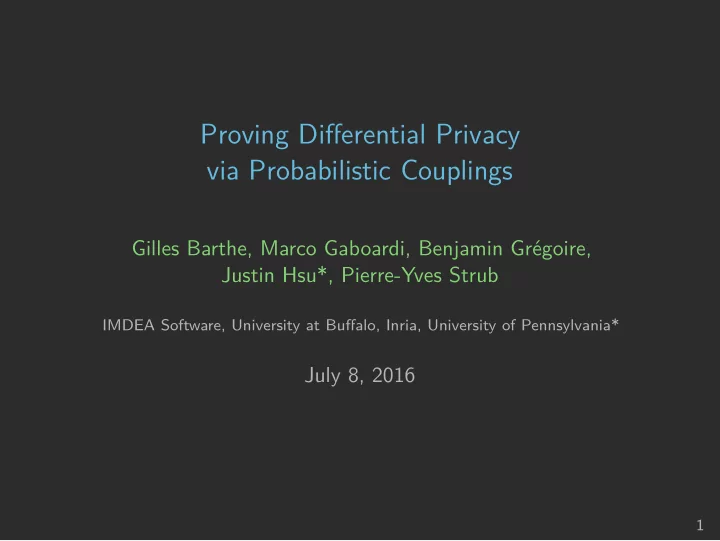

Proving Differential Privacy via Probabilistic Couplings Gilles Barthe, Marco Gaboardi, Benjamin Grégoire, Justin Hsu*, Pierre-Yves Strub IMDEA Software, University at Buffalo, Inria, University of Pennsylvania* July 8, 2016 1
A new approach to formulating privacy goals: the risk to one’s privacy, or in general, any type of risk . . . should not substantially increase as a result of participating in a statistical database. This is captured by differential privacy. — Cynthia Dwork 2
Increasing interest In research. . . 3
Increasing interest In research. . . . . . and in the “real world” 3
4
Dwork, McSherry, Nissim, and Smith Let ǫ ≥ 0 be a parameter, and suppose there is a binary adjacency relation Adj on D . A randomized algorithm M : D → Distr ( R ) is ǫ -differentially private if for every set of outputs S ⊆ R and every pair of adjacent inputs d 1 , d 2 , we have Pr x ∼ M ( d 1 ) [ x ∈ S ] ≤ exp( ǫ ) · Pr x ∼ M ( d 2 ) [ x ∈ S ] . 5
Recommend
More recommend